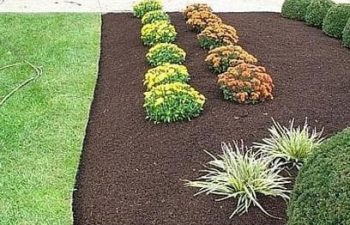
Just a couple of weeks ago, after days of temperatures in the 70s and 80s, we experienced an unexpected frost here in North Georgia. Many, many homeowners had already planted their flowerbeds and gardens, only to lose much (if not all) of what they had planted. While it can be heartbreaking to suffer a big frost, there are things you can do to recover your landscape and still have a beautiful spring and summer.
While it stinks, most young plants in the garden and newly planted flowers will need to be replaced. Yes, it is awful to shell out money for things to have to turn around and shell out even more – but, hopefully, you will learn your lesson this year and plant later next year. Or, if you do plant early and a frost comes – you will know to cover your plants anytime there is a “frost warning” to avoid another loss like this year.
However, what if we are talking about large shrubs and trees that were bitten by the frost? They are not so easily replaced. Frequently, it takes a few days for damaged trees and shrubs to become evident. The typical characterization is the browning of new growth, mainly leaves and needles. For the most part, this damage is primarily aesthetic only, and plants will quickly resume their growth. There may be some growth reduction in these plants for the current season, but that should be little, if any, lasting impact.
You want to refrain from cutting away any damaged areas to your plants. Pruning should only be done during specific times during the year, and it will differ for different types of plants. Pruning out of season can cause significant damage to your plants and trees, encouraging rot and infection to occur within the stems. Also, the dead material on your plants can actually work as an insulator in case another unexpected frost occurs.
Of course, the best way to protect your plants is by paying attention to any frost warnings and acting accordingly. Using a light cloth or sheet to cover plants is important. Remember to remove the covering once the sun comes out to prevent suffocating your plants. You can also use mulch to help insulate the roots and vulnerable shoots of new plants. Mulch keeps the roots and soil warmer in the winter and cooler in the summer. Mulch is really an unsung hero of gardening and landscaping.
Contact Southern Landscape Supply to learn more.
